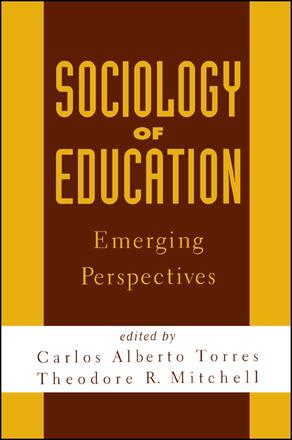
Sociology of Education
Emerging Perspectives
Alternative formats available from:
Examines emerging theoretical and methodological approaches to the field of sociology of education. These perspectives draw on notions of social justice, diversity, multiculturalism, and detracking.
Description
Sociology of Education discusses emerging theoretical and methodological approaches to the field of sociology of education. These emerging perspectives focus on the scholarship of class, race, gender and the state in education, and open up new avenues for theoretical and empirical work in the field. Anyone concerned with issues of quality and equality of educational opportunities and the social context of education will find Sociology of Education not only exciting but also useful in promoting new ways of thinking about and acting upon educational reform.
Carlos Alberto Torres is Director of the Latin American Center at the University of California, Los Angeles and coauthor, with Raymond Allen Morrow, of Social Theory and Education: A Critique of Theories of Social and Cultural Reproduction, also published by SUNY Press. Theodore R. Mitchell is Dean of the Graduate School of Education and Information Studies at the University of California, Los Angeles.
Reviews
"Stressing power, domination, and class, as well as the issues of race and gender, this review and assessment of 'emerging perspectives' in the sociology of education challenges crucial assumptions of postmodern thinking (read contemporary social theory) thoughtfully, systematically, and in an engaging manner. The book is compelling as a whole and in its parts. " — Sheryl L. Lutjens, Northern Arizona University
"The topics covered in this book include some of the more difficult and important issues in the field of sociology of education today, bringing new insights and a fresh perspective. In the theoretically focused chapters, there is a concerted attempt to push the discourse into new territories that combine and integrate such traditionally separated categories as race, class, and gender. The empirical pieces are similarly, if not more, provocative, shedding new light on such recurrent, problematic areas as the increasing power of conservative, right-wing forces in curriculum development, the elimination or modification of high school tracking policies, and the experiences of students of color in both secondary and higher education. The comparative approach taken by several chapters is not typically seen in United States-based studies and adds a thoughtful, important dimension. True to the original promise outlined in the introduction, the book draws from voices that represent a range of race and gender experiences. " — Pia Lindquist Wong, California State University, Sacramento